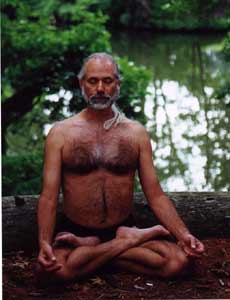
Does Meditation-Relaxation Potentiate Psychotherapy?
Lakshyan Schanzer
MSPP, November 1990
Chairperson: Gila Lindsley, Ph.D.
ABSTRACT
The purpose of this study was to investigate how induction into either of two experimental conditions (meditation-relaxation or ordinary wakefulness) compare in their ability to increase phenomena considered useful to psychotherapy. These phenomena are: access to thoughts, access to emotions, access to physical sensations, and access to memories.
Twenty-five men and twenty-five women who were naive to meditation, relaxation, or biofeedback were randomly assigned to experimental and control conditions. The two groups were balanced for gender. Physiological measures were used to assess the effectiveness of the inductions. Subject grouping data were then used to determine the effects on the four dependent variables of interest. Dependent variables were subject reports on the presence of thoughts, emotions, physical sensations, and memories.
The findings were that naive subjects could be inducted into meditation-relaxation with brief training; and that with respect to memory access, there was an interaction of initial induction condition with gender. Relative to ordinary wakefulness: Women given meditation training reported significantly less access to memory. However, men given meditation training reported significantly more access to memory. Also, when subjects were grouped according to actual state, gender had unexpected association with access to thoughts. Women reported significantly more access to thoughts than men. How these and other findings might impact psychotherapy practice were discussed.
No Comments
Sorry, the comment form is closed at this time.


